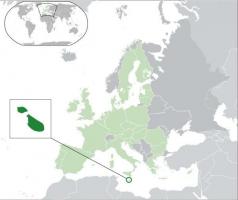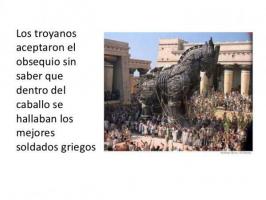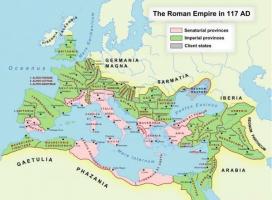Absolutism: definition and characteristics
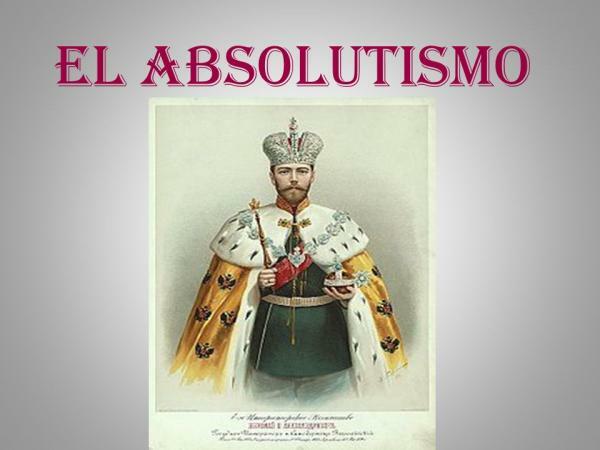
Image: Slideplayer
Every epoch in history has had a predominant form of government. A political regime, which most of the most relevant countries of the moment had similar to each other. Systems that characterized the time, and that we currently relate to that period. One of these political systems is absolutism, and that is why today in this lesson from a PROFESSOR we are going to talk about the definition and characteristics of absolutism.
Absolutism was a type of government and a monarchical political regime typical of the Old Regime, that is, the period prior to the French Revolution. In this system all power resided in the king and this power could not be limited by any measure except by divine law. The king was said to have divine lineage, being the divine representation of God, and therefore was not subject to earthly standards.
For absolutism, the king was the state, so all powers emanated from his figure, and were subordinate to his will. The power of the king covered all fields of the time, so he also made decisions related to the religious world.
Absolutism would dominate Western Europe for three centuries, being the most important form of government of the Modern Age. This represents a change compared to the previous time, where power was shared between the king and the feudal lords.
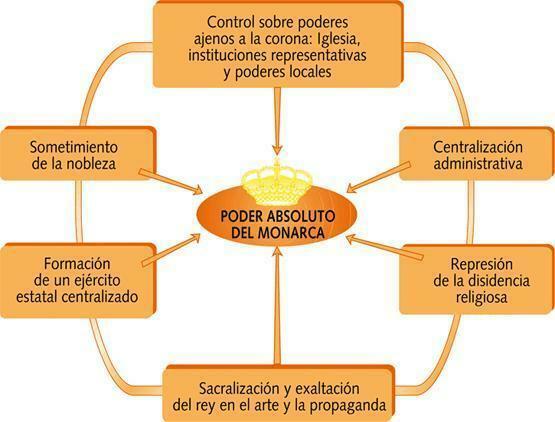
Image: Google Sites
To continue with this lesson on the definition and characteristics of absolutism we must talk about the origins of absolutism. Absolutism was the direct consequence of different factors of the time that brought about an enormous change.
In the last years of the Middle Ages, a series of factors appeared that made it necessary to create a new political system, one where power was more centralized, in order to increase the influence of the King. Some of these factors were the following:
- The power of the nobility. Throughout the Middle Ages the power of the nobility had been one of the king's greatest problems. That the monarch should count on the armies of the nobles. towards that many times these had a great importance in the decisions of the king. With the move to a permanent army the nobility lost power, which was recovered by the monarch.
- The emergence of the bourgeoisie was another important factor. The appearance of a class with such great economic power, helped the king to maintain military affairs without asking for help from the nobility.
- Another factor was the need for a predominant power. The last years of the Middle Ages were a time full of conflict, war and disease. An order was needed, something that would give security to the people, and this order was embodied by the power of the king.
- Return to Roman Law. The Roman figure of the emperor was revalued, an absolute prince who united all the powers in the person of him.
All these factors led to the end of the absolute regimes of the time, and the passage to absolutism, a system that managed to fix all the problems that had arisen over the years later. Because of this, there were many European states that took absolutism as a political system.

